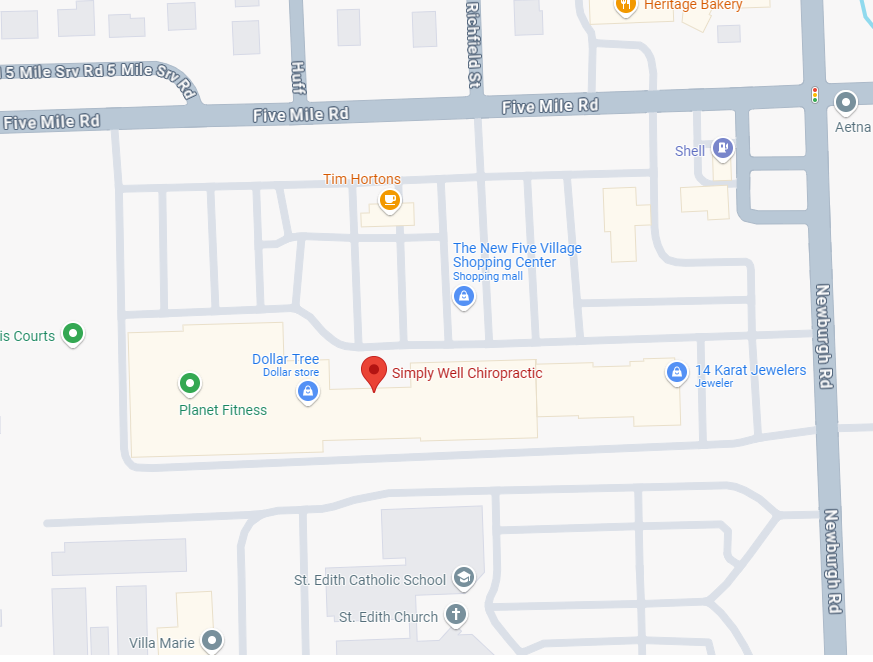TMJ Disorders and Chiropractic Care: Finding Relief Naturally
TMJ (temporomandibular joint) disorders affect the jaw joint and the muscles that control jaw movement. When these joints become misaligned or irritated, it can lead to pain, stiffness, and difficulty chewing, speaking, or even breathing. While TMJ disorders can be uncomfortable and disruptive, chiropractic care offers a natural, non-invasive approach to help manage and relieve symptoms.
If you’re dealing with TMJ pain and discomfort, chiropractic care may be the solution you’ve been looking for. Here’s how chiropractic treatment can help alleviate TMJ symptoms and improve your quality of life.
What Is TMJ and What Causes It?
The temporomandibular joint (TMJ) connects the jawbone to the skull and is responsible for allowing the jaw to move smoothly when you talk, chew, or yawn. TMJ disorders occur when these joints become misaligned, inflamed, or irritated, resulting in a range of symptoms.
Symptoms:
- Jaw pain or tenderness, especially when chewing or speaking.
- Clicking, popping, or grinding sounds when moving the jaw.
- Limited jaw movement or difficulty fully opening the mouth.
- Headaches or earaches.
- Neck and shoulder pain due to jaw strain.
- Facial pain or swelling near the jaw.
- Tinnitus (ringing in the ears).
Common Causes of TMJ Disorders:
- Jaw misalignment (subluxation): When the jaw joints are out of alignment, it can cause stress on the surrounding muscles, ligaments, and tissues.
- Teeth clenching or grinding (bruxism): Chronic clenching or grinding of the teeth, especially at night, can place excessive pressure on the TMJ, leading to pain and inflammation.
- Postural issues: Poor posture, particularly forward head posture or slouching, can affect the alignment of the spine and jaw, contributing to TMJ dysfunction.
- Stress and anxiety: Emotional stress often leads to muscle tension, which can exacerbate jaw pain and contribute to TMJ disorders.
- Injury or trauma: A blow to the jaw or head, such as from an accident, can result in TMJ dysfunction.
In this article, we will explore how chiropractic treatment can benefit migraine sufferers, backed by scientific studies and evidence that support its effectiveness.
How Chiropractic Care Can Help With TMJ Disorders
Chiropractors focus on the spine, nervous system, and musculoskeletal health, and they are experts in addressing issues that affect the alignment and function of joints, including the TMJ. Here’s how chiropractic care can help treat TMJ disorders:
1. Spinal Adjustments and Alignment
Misalignments in the cervical spine (neck) can contribute to TMJ problems. Chiropractic adjustments to the neck and upper spine can improve posture and restore proper alignment, helping to relieve tension in the jaw and reduce pain. By improving spinal alignment, chiropractors also help reduce the nerve interference that may be causing jaw pain and dysfunction.
Focus Areas:
-
-
- Cervical Spine (Neck): Adjusting the cervical spine helps alleviate stress on the muscles of the jaw and neck, reducing the strain that can contribute to TMJ symptoms.
- Upper Thoracic Spine: Misalignments in the upper back can affect posture, which in turn affects jaw alignment. Chiropractic adjustments to the thoracic spine can improve posture and reduce jaw strain.
-
2. Jaw Adjustments
Poor posture, such as forward head posture, can worsen TMJ dysfunction by altering the alignment of the jaw and neck. Chiropractors often provide posture correction techniques and ergonomic recommendations to help reduce the strain on the TMJ.
Lifestyle Tips:
-
-
- Stress Management: Learning relaxation techniques, such as deep breathing or meditation, can reduce muscle tension and decrease the tendency to clench the jaw.
- Proper Sleep Position: Sleeping in positions that support spinal alignment can help prevent additional stress on the jaw and neck.
- Jaw Exercises: Chiropractors may recommend specific exercises to strengthen the muscles around the jaw and help improve jaw mobility.
-
3. Posture and Lifestyle Recommendations
TMJ disorders, which affect the jaw joint, can also contribute to tension headaches. Misalignment of the jaw or teeth can cause muscle tension in the face and neck, triggering headache pain. Chiropractic adjustments to the cervical spine and jaw can help alleviate TMJ-related headaches. Gentle adjustment to the jaw can help relieve any associated pain.
Lifestyle Tips:
-
-
- Stress Management: Learning relaxation techniques, such as deep breathing or meditation, can reduce muscle tension and decrease the tendency to clench the jaw.
- Proper Sleep Position: Sleeping in positions that support spinal alignment can help prevent additional stress on the jaw and neck.
- Jaw Exercises: Chiropractors may recommend specific exercises to strengthen the muscles around the jaw and help improve jaw mobility.
-
Nutrition Tips to Support TMJ Health:
- Anti-inflammatory Foods: Incorporating foods like turmeric, ginger, and fatty fish (salmon, mackerel) can reduce inflammation around the TMJ and improve joint health.
- Magnesium-Rich Foods: Magnesium helps relax muscles and prevent muscle spasms. Leafy greens, nuts, seeds, and whole grains are excellent sources.
- Hydration: Staying hydrated is essential to prevent muscle stiffness and tension. Drink plenty of water throughout the day.
- Avoid Hard or Chewy Foods: If you’re dealing with acute TMJ pain, try to avoid foods that require a lot of chewing (e.g., tough meats, gum) to reduce stress on the jaw.
Exercise Tips to Improve TMJ Function:
- Jaw Relaxation Exercises: Gently open and close your mouth, or massage the jaw muscles to help reduce tension.
- Neck and Shoulder Stretches: Stretching the muscles in your neck and shoulders can help alleviate the muscle tension that often accompanies TMJ disorders. Focus on stretches that relieve tension in the upper back and neck.
- Strengthening Exercises: Targeting the muscles of the jaw with gentle exercises can improve jaw stability and reduce the likelihood of pain and dysfunction.
Why Choose Chiropractic Care for TMJ Disorders?
Chiropractic care offers a holistic, drug-free approach to treating TMJ disorders. Unlike medications that may only mask symptoms, chiropractic treatments address the root causes of TMJ dysfunction by focusing on spinal and jaw alignment, improving posture, and reducing muscle tension. Chiropractic care provides long-term relief by helping restore proper joint function and preventing further discomfort.
- Spinal Adjustments: Correct misalignments in the neck and spine that contribute to TMJ pain.
- Jaw Adjustments: Relieve jaw tension and improve function.
- Posture and Lifestyle Tips: Address habits that may worsen TMJ symptoms, such as stress and poor posture.
Conclusion:
If you’re struggling with tension headaches, chiropractic care may provide the relief you need. Our experienced chiropractic team is here to assess your condition, develop a personalized treatment plan, and help you achieve lasting relief. Whether you’re dealing with occasional headaches or chronic pain, we’re committed to helping you live a healthier, pain-free life.
Supporting Studies: Chiropractic Care for TMJ Disorders
Several studies support the use of chiropractic care for treating TMJ disorders. Below are key findings that back the effectiveness of chiropractic adjustments in managing TMJ pain:
1. Chiropractic Treatment of Temporomandibular Dysfunction
-
- Source: Journal of Manipulative and Physiological Therapeutics
- Summary: This retrospective case series evaluated 14 patients with temporomandibular joint dysfunction (TMD) who received chiropractic care. The treatment included spinal manipulations and soft tissue therapies targeting the suprahyoid muscles. Results showed an average pain reduction from 8.3 to 1.4 on a numeric pain scale, indicating an 80.9% improvement.
2. Temporomandibular Disorder Treated With Chiropractic Therapy
-
- Source: Journal of Clinical Medicine
- Summary: A quasi-experimental study involving 24 patients with TMD compared chiropractic therapy to exercise therapy. The chiropractic group experienced significant improvements in pain reduction, range of motion, and function, suggesting that chiropractic care is more effective than exercise therapy alone for TMD.
3. Chiropractic Care for Temporomandibular Joint Disorders
-
- Source: ChiroUp
- Summary: This article discusses evidence-based approaches to managing TMD, emphasizing the role of chiropractic care. It highlights how chiropractic adjustments can alleviate muscle tension, improve joint mobility, and reduce pain associated with TMD.
Ready to experience TMJ relief through chiropractic care? Contact us today to book your consultation and begin your journey to a pain-free life!




![Copy of [Original size] Beige Green Simple Welcome to Neighborhood Greeting Gift Card (6)](https://getsimplywell.com/wp-content/uploads/2024/04/Copy-of-Original-size-Beige-Green-Simple-Welcome-to-Neighborhood-Greeting-Gift-Card-6.png)